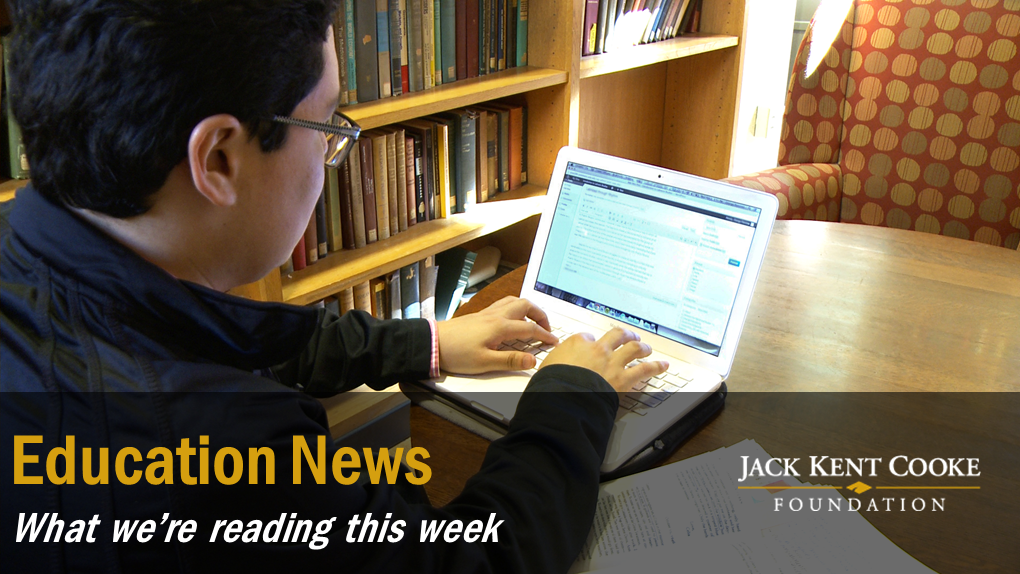September 2: Education News We're Reading This Week

September 2, 2016 – Here’s our weekly roundup of education news you may have missed. Concerns about K-12 education policy and financial aid for low-income students were both prevalent topics in media coverage.
Elementary & Secondary Education:
-
“Going forward, policy makers who care about their low-income high achievers should take full advantage of their newfound authority under the Every Student Succeeds Act (ESSA) to ensure that their schools have ample incentives to educate those children, and all children, to the max,” writes The Thomas B. Fordham Institute.
-
In other ESSA news, the Department of Education announced new draft rules for the law’s “support not supplant” clause, regarding the allocation of Title I resources. The Washington Post covers the new changes and the criticism surrounding them.
-
School readiness gaps are narrowing, reports The New York Times. However, “it would take another 60 to 110 years for them to be completely eliminated.”
-
Should Pre-K be integrated with the public education system? In an interview with The 74 Million, Dr. Ruby Takanishi argues that early education should be viewed as “as an integral part of every child’s learning experience.”
Higher Education:
-
“Price, not intellect or effort, is the primary sorting mechanism in today’s colleges,” writes Temple University Professor Sara Goldrick-Rab in The Chronicle of Higher Education. Her piece summarizes the challenges identified in a long-term study of Pell Grant recipients and suggests remedies for higher education institutions to make.
-
Forbes provides excellent college selection advice for high-achieving students with financial need, as well as some suggested solutions for colleges and universities to engage these students and their families.
-
Now that FAFSA is available October 1 (instead of the prior annual deadline of January 1), some colleges and universities are moving their financial aid deadlines up as well. Money Magazine describes the potential confusion facing prospective students.
Cooke Foundation Highlights:
-
Impostor Syndrome is prevalent among low-income and first-generation students, including our talented Cooke Scholars. Executive Director Harold O. Levy’s letter to the editor in The New York Times emphasizes the need for improved campus supports.
-
Washington Monthly’s list of the 16 most innovative people in higher education includes Cooke Scholar Ben Castleman, who is working with First Lady Michelle Obama’s Better Make Room text messaging initiative to help remind students of key college application and financial aid steps.
-
Our “True Merit” report is cited in The Topeka Capital-Journal’s editorial on Kansas’ ACT achievement gap.
-
Our Undergraduate Transfer Scholarship application is currently open. Community college students who are determined to complete their bachelor’s degree can apply now for up to $40,000 per year, along with opportunities for study abroad, internship stipends, graduate school funding and more! Start your application.